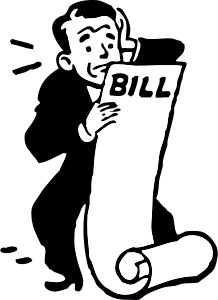Earlier this year, Pennsylvania legislators proposed a number of online gambling bills. Due to the high rate of legislative activity on the subject, it was estimated that the odds of regulations being passed in 2015 were probable. Despite any movement on the matter in several months, Rep. John Payne says the topic of internet gaming regulation is still very much alive and kicking in 2015.
 As the year begins to wan, the speculation that regulation is a dead issue started to arise. “Nothing is further from the truth,” assured Rep. Payne, Majority Chairman of the House Gaming Oversight Committee who introduced the first of 6 online gambling bills in PA this year.
As the year begins to wan, the speculation that regulation is a dead issue started to arise. “Nothing is further from the truth,” assured Rep. Payne, Majority Chairman of the House Gaming Oversight Committee who introduced the first of 6 online gambling bills in PA this year.
Rep. Payne said the matter is still on the table, but that online gambling discussions simply cannot proceed until the state’s budget agreement concludes. That won’t happen until October, but he said that will still leave plenty of time to work out the details of a regulatory framework.
The problem is that each of the measures have different views on how internet gaming should be implemented. There’s support for an online poker-only framework, as well as poker and casino gaming combined. There’s even one measure that aims to prohibit online gambling altogether, though that bill has gained very little traction in the Keystone State.
The most notable difference between each piece of legislation is the rate of taxation that should be applied to interactive gross gaming revenue. Rep. Payne’s bill seeks the lowest tax rate of just 14%, while the highest proposed rate calls for a staggering 54%. Such high taxation wouldn’t create a very attractive marketplace for operators.
Rep. Payne says that, before legislators can agree on a proper tax rate, they have to figure out the budget. Then they can determine what amount of taxation would be best suited to create a cohesive atmosphere for operators, while at the same time generating adequate income for the state.
At present, only three US states have authorized online casino and/or poker games. In Nevada, where only internet poker is permitted, the lowest tax rate of about 7% has been applied. New Jersey collects approximately 18% from its online poker and casino operators. Delaware, however, takes the largest slice of GGR from its online poker/casino sites at 45%.
In terms of revenue, New Jersey has had the most success, pulling in $125 million in its first full year of operation, 2014. That’s well below the original estimates of anywhere from $200 million to $1 billion annually, but having increased its yield by 14.2% already in 2015, it’s a great sign for the future of the market.
A study conducted in Pennsylvania, the second largest commercial gambling destination in the US, estimated that the Keystone State could generate up to $129 from online poker and another $178 million from online casino games per year, once the market matures.
After witnessing the grossly overestimated results in New Jersey, legislators are surely lowering their expectations, but if the market were to reach that height, it would add another 10% on top of the state’s current land-based casino gambling revenue of $3 billion annually.
